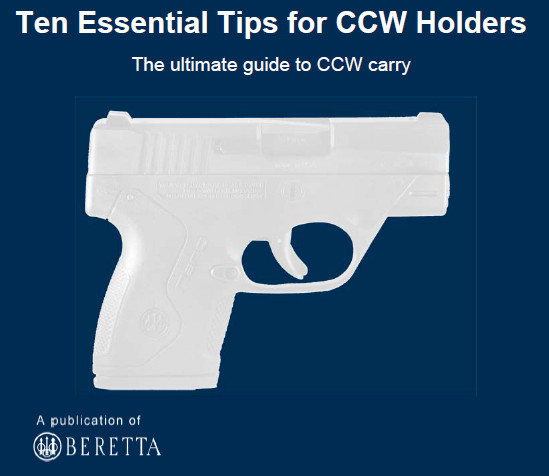1. Can a person prohibited by law from possessing a firearm acquire and use a black powder muzzle loading firearm?
The Gun Control Act of 1968 (GCA) prohibits felons and certain other persons from possessing or receiving firearms and ammunition (“prohibited personsâ€). These categories can be found at 18 U.S.C. § 922(g) and (n) in http://atf.gov/publications/download/p/atf-p-5300-4.pdf.
However, Federal law does not prohibit these persons from possessing or receiving an antique firearm. The term “antique firearm†means any firearm (including any firearm with a matchlock, flintlock, percussion cap, or similar type of ignition system) manufactured in or before 1898. The definition includes any replica of an antique firearm if it is not designed or redesigned for using rimfire or conventional centerfire fixed ammunition, or uses rimfire or conventional centerfire ammunition which is no longer manufactured in the United States, and which is not readily available in ordinary channels of commercial trade. Further, any muzzle loading rifle, shotgun, or pistol which is designed to use black powder or black powder substitute, and which cannot use fixed ammunition, is an “antique firearm†unless it (1) incorporates a firearm frame or receiver; (2) is a firearm which is converted into a muzzle loading weapon; or (3) is a muzzle loading weapon which can be readily converted to fire fixed ammunition by replacing the barrel, bolt, breechblock, or any combination thereof. See 18 U.S.C. § 921(a)(3), (a)(16).
Thus, a muzzle loading weapon that meets the definition of an “antique firearm†is not a firearm and may lawfully be received and possessed by a prohibited person under the GCA.
In addition, the GCA defines the term “ammunition†to mean “ammunition or cartridge cases, primers, bullets, or propellant powder designed for use in any firearm.†Because an “antique firearm†is not a “firearm,†it would be lawful for a prohibited person to receive or possess black powder designed for use in an “antique firearm.†Also, the Federal explosives laws do not make it unlawful for a prohibited person to acquire and possess black powder in quantities not exceeding fifty pounds if it is intended to be used solely for sporting, recreational, or cultural purposes in “antique firearms.†See 18 U.S.C. § 845(a)(5)
By contrast, a prohibited person may not receive or possess black powder firearms that can be readily converted to fire fixed ammunition by replacing the barrel, bolt, breechblock, or any combination thereof. ATF has classified certain muzzle loading models as firearms. All of these models incorporate the frame or receiver of a firearm that is capable of accepting barrels designed to fire conventional rimfire or centerfire fixed ammunition. These muzzle loading models do not meet the definition of “antique firearm†as that term is defined in 18 U.S.C. § 921(a)(16), and are “firearms†as defined in 18 U.S.C. § 921(a)(3). Furthermore, as firearms, these and similar models, regardless of the barrel installed on the firearm or provided with the firearm, are subject to all provisions of the GCA. Persons who purchase these firearms from licensed dealers are required to fill out a Firearms Transaction Record, ATF Form 4473, and are subject to a National Instant Criminal Background Check System (NICS) check. Felons and other prohibited persons may not lawfully receive or possess these firearms or ammunition.
The following is a list of weapons that load from the muzzle and are classified as firearms, not antiques, under the GCA, because they incorporate the frame or receiver of a firearm:
Savage Model 10ML (early, 1st version)
Mossberg 500 shotgun with muzzle loading barrel
Remington 870 shotgun with muzzle loading barrel
Mauser 98 rifle with muzzle loading barrel
SKS rifle with muzzle loading barrel
PB sM10 pistol with muzzle loading barrel
H&R/New England Firearm Huntsman
Thompson Center Encore/Contender
Rossi .50 muzzle loading rifle
This list is not complete and frequently changes. There may be other muzzle loaders also
classified as firearms. As noted, any muzzle loading weapon that is built on a firearm frame or
receiver falls within the definition of a firearm provided in 18 U.S.C. § 921(a)(3).
Finally, even though a prohibited person may lawfully possess an antique firearm under Federal
law, State or local law may classify such weapons as “firearms†subject to regulation. Any
person considering acquiring a black powder weapon should contact his or her State Attorney
General’s Office to inquire about the laws and possible State or local restrictions. A list of State
Attorney General contact numbers may be found at www.naag.org.
2. May I lawfully transfer a firearm to a friend who resides in a different State?
Under Federal law, an unlicensed individual is prohibited from transferring a firearm to an
individual who does not reside in the State where the transferee resides. Generally, for a person
to lawfully transfer a firearm to an unlicensed person who resides out of State, the firearm must
be shipped to a Federal Firearms Licensee (FFL) within the recipient’s State of residence. He or
she may then receive the firearm from the FFL upon completion of an ATF Form 4473 and a
NICS background check. More information can be obtained on the ATF website at www.atf.gov
and http://www.atf.gov/firearms/faq/unlicensed-persons.html. The GCA provides an exception
from this prohibition for temporary loans or rentals of firearms for lawful sporting purposes.
Thus, for example, a friend visiting you may borrow a firearm from you to go hunting. Another
exception is provided for transfers of firearms to nonresidents to carry out a lawful bequest or
acquisition by intestate succession. This exception would authorize the transfer of a firearm to a
nonresident who inherits a firearm under the will of a decedent. See 18 U.S.C. 922(a)(5).
3. May I lawfully transfer a firearm to a resident of the same State in which I reside?
Any person may sell a firearm to an unlicensed resident of the State where he resides as long as
he does not know or have reasonable cause to believe the person is prohibited from receiving or
possessing firearms under Federal law. There may be State laws that regulate interstate firearm
transactions. Any person considering acquiring a firearm should contact his or her State
Attorney General’s Office to inquire about the laws and possible State or local restrictions. A
list of State Attorney General contact numbers may be found at www.naag.org.
4. How do I register my firearm or remove my name from a firearms registration?
There is no Federal registration requirement for most conventional sporting firearms. Only those firearms subject to the National Firearms Act (NFA) (e.g., machineguns, short-barrel firearms, silencers, destructive devices, any other weapons) must be registered with ATF. For information on the registration and transfer provisions of the National Firearms Act, please refer to the ATF NFA Handbook at http://www.atf.gov/publications/firearms/nfa-handbook/ or contact the ATF NFA Branch at 304-616-4500. Firearms registration may be required by State or local law. Any person considering acquiring a firearm should contact his or her State Attorney General’s Office to inquire about the laws and possible State or local restrictions. A list of State Attorney General contact numbers may be found at www.naag.org.
5. Does ATF issue a Concealed Carry Permit (CCP) that authorizes a person to carry a firearm throughout the United States?
Neither ATF nor any other Federal agency issues such a permit or license. CCPs may be issued by a State or local government.
6. May I lawfully ship a firearm to myself in a different State?
Any person may ship a firearm to himself or herself in the care of another person in the State where he or she intends to hunt or engage in any other lawful activity. The package should be addressed to the owner “in the care of†the out-of-State resident. Upon reaching its destination, persons other than the owner must not open the package or take possession of the firearm.
7. May I lawfully ship a firearm directly to an out-of-State licensee, or must I have a licensee in my State ship it to him? May the licensee return the firearm to me, even if the shipment is across State lines?
Any person may ship firearms directly to a licensee in any State, with no requirement for another licensee to ship the firearm. However, handguns are not mailable through the United States Postal Service and must be shipped via common or contract carrier.(18 U.S.C. §§ 1715). Firearms shipped to FFLs for repair or any other lawful purpose may be returned to the person from whom received without transferring the firearm through an FFL in the recipient’s State of residence. FFLs may also return a replacement firearm of the same kind and type to the person from whom received. 18 U.S.C. § 922(a)(2)(A).
8. I have been convicted of a felony. How do I reinstate my rights to possess a firearm?
Persons who have been convicted of a “crime punishable by imprisonment for a term exceeding one year,†as defined by 18 U.S.C. § 921(a)(20), are prohibited from receiving or possessing firearms under Federal law, 18 U.S.C. § 922(g)(1). Felons whose convictions have been set-aside or expunged, or for which the person has been pardoned or has had civil rights restored are
not considered convicted under section 922(g)(1), unless that person was expressly prohibited by the law of the jurisdiction in which the proceedings were held from possessing firearms. Persons convicted of a State offense should contact the State Attorney General’s Office in the State in which they reside and the State of the conviction for information concerning State and local firearms restrictions, and any alternatives that may be available, such as a gubernatorial pardon or civil rights restoration.
If your conviction is for a Federal offense, you would regain the ability to lawfully receive, possess, or transport firearms if you receive a Presidential pardon. You can find additional information about such pardons by contacting the Office of the Pardon Attorney online at www.usdoj.gov/pardon/.
The GCA includes a provision that gives ATF authority to grant relief from Federal firearms disabilities. 18 U.S.C. § 925(c). However, since 1992, ATF’s annual Congressional appropriation has prohibited ATF from expending any funds to investigate or act upon applications for relief from Federal firearms disabilities submitted by individuals. As long as this provision is included in ATF appropriations, ATF cannot act upon such applications for relief.
9. May I lawfully make a firearm for my own personal use, provided it is not being made for resale?
Firearms may be lawfully made by persons who do not hold a manufacturer’s license under the GCA provided they are not for sale or distribution and the maker is not prohibited from receiving or possessing firearms. However, a person is prohibited from assembling a non-sporting semiautomatic rifle or shotgun from 10 or more imported parts, as set forth in regulations in 27 C.F.R. 478.39. In addition, the making of an NFA firearm requires a tax payment and advance approval by ATF. An application to make a machinegun will not be approved unless documentation is submitted showing that the firearm is being made for the official use of a Federal, State, or local government agency (18 U.S.C. § 922(o),(r); 26 U.S.C. § 5822; 27 C.F.R. §§ 478.39, 479.62, and 479.105).
10. I was the subject of a NICS check when I attempted to purchase a firearm from an FFL, and I received a delayed response or a denial. Please tell me why I did not receive a “proceed†response.
ATF does not operate the National Instant Criminal Background Check System (NICS). It is administered by the Federal Bureau of Investigation (FBI). Please contact the NICS Customer Service Center at (877) 444-6427 for further assistance. You can also find information about the NICS system by visiting the FBI’s website at http://www.fbi.gov/about-us/cjis/nics.



